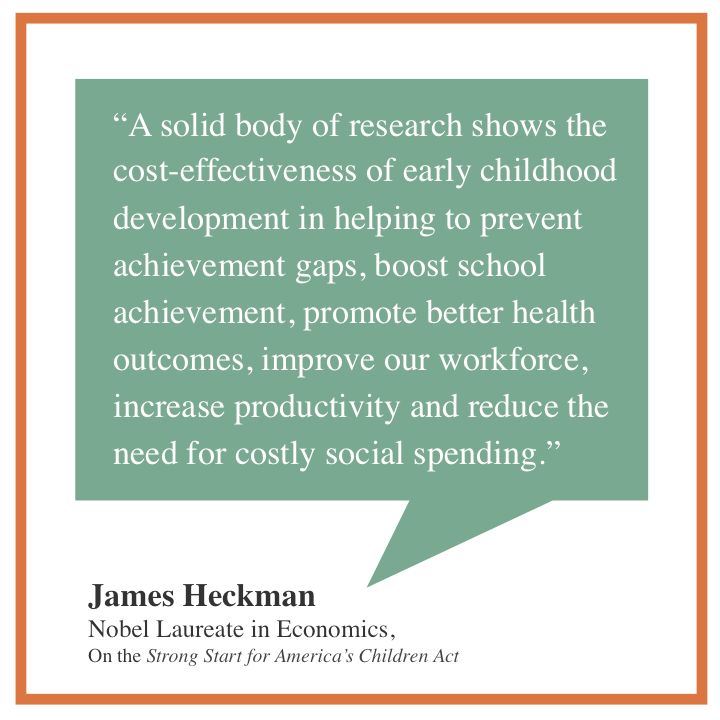It is hard to think of a smarter investment in this community’s future than pre-K, and that’s why we welcome Memphis City Council’s interest in protecting and expanding the program so every four-year-old can benefit.
Three things occur to us as a result of the first proposal to use hotel-motel taxes to fund pre-K.
One – As Mark Sturgis, executive director of Seeding Success, told us in a recent interview, there are 7,500 children in pre-K, which means that Shelby County is only 1,000 seats from its goal. Best of all, our children outperform the national average for their peers. In fact, they have increased their kindergarten readiness by 30 percentage points in five years. We need to find the funding to reach full participation for our children and we need to find money to protect against federal and state cuts.
Two – Memphis tourism is a $3.2 billion industry and employs about 35,000 people. And yet, the Memphis Convention and Visitors Bureau has absorbed serious cuts in funding that cumulatively have amounted to $12 million despite having a return on investment higher than its Nashville counterpart.
Three – The PILOT program each year waives about $65-70 million in city and county taxes. This amount includes about $10 million a year that would otherwise go to schools. Memphis and Shelby County Governments could “thaw” the maximum PILOT to produce the funding that is needed to cover pre-K costs.
Across the Aisle
This is the context in which we consider City Councilwoman Patrice Robinson and City Councilman Kemp Conrad’s proposal for city government to find a way to fully fund pre-K. It’s certainly a goal we all can support and we commend them for making pre-K funding a front burner issue for city government. Coupled with their recent initiative to reduce Memphis’ troubling bankruptcy rates and to address its causes, their willingness to work together across the aisle on crucial issues is an example for other local initiatives.
While the details of the plan to get every four-year-old into pre-K appears to be fluid based on the conversation at today’s Council meeting, funding it with an increase in hotel-motel taxes (Memphis already has one of the highest cumulative tax rates on hotel rooms in the country – higher than Nashville or New York City) runs the risk of making the city less competitive.
Hotel-motel taxes are regularly targets for politicians because of the assumption that there is no political blowback for charging visitors more money for their hotel rooms. However, it begs the question of how much opposition hoteliers can generate from the thousands of workers who are employed in their businesses and opposition from attractions who are concerned that higher hotel rates can depress their attendance.
After all, a convention delegate spends an average each day of $397 and corporate travelers and leisure travelers spend $340.
Beginning A Conversation
It’s always problematic when there is no clear nexus between the source of funding and its use. Hotel-motel taxes were created and increased with the support of the hospitality and hotel industries because the taxes were to fund activities – primarily convention centers and tourism marketing – that would in turn increase hotel occupancy rates and expand this sector of our community’s economy.
That said, City Council did not seem yesterday to be locked into the hotel-motel tax increase as the answer, but rather, to begin a conversation about what might be possible.
When we look to cities that are moving in the right direction, it’s almost inevitable that there was a point in time when a strategic decision or investment was made that changed their trajectories for the better.
The best investments – the ones that have the traction to change things – are rooted in what’s distinctive about the specific city itself. This is something that the private sector has known for some time: competitive advantage is found in differentiation. It’s that differentiation that tells us why pre-K means so much to Memphis and its future.
When compared to the other comparable cities, Memphis is in the top of the rankings for the percentage of the population under 18 years old. For example, while Memphis and Nashville have almost identical city populations, Memphis has 26,500 children, leading Portland economist Joe Cortright to say: “While other cities are trying to recruit talent, Memphis has it already in its classrooms. Of course, the trick is to get these students educated and receiving degrees that prepare them for the jobs of the future.”
Research and Common Sense
There are many research-backed reasons to support Pre-K, but the one that gets our attention is that students who have participated in Pre-K are more likely to graduate from high school (and hopefully, are poised to attend college).
In that way, for us, Pre-K is more than an educational strategy. Rather, it is a fundamental talent strategy.
That’s why we have written so many posts in the past in support of pre-K, and why we think the City Council deliberations are the opportunity to walk the walk and not just talk the talk about how important our children are.
When it comes to Pre-K, it seems to be one of those times when research and common sense converge. After all, many of us can afford to pay for our children or grandchildren to enroll in quality pre-K, and we do it because we have seen the improvements that come from this early introduction to language, thinking, self-control, and pride in achievement.
However, this is denied to too many children. Fewer than half of the 242,000 children in Shelby County are economically secure and 45% of children in Memphis live in poverty, where the odds of climbing the income ladder are stacked against them. In this way, Pre-K is an early effort to level the playing field and give children often treated as liabilities the opportunities to become talented assets for our community as it works to compete for jobs in the knowledge economy.
Pre-K Talent Strategy
There is no more important priority in Memphis than a high-skill workforce, but we are now ranked toward the bottom of the 51 largest regions in the percentage of college-educated 25-34 year-olds (and the percentage of college-educated workers accounts for 60% of a city’s economic success). To improve those percentages, there’s no better time than to start at the beginning and set in motion a different future for our youngest children.
Like all public policy issues, ultimately, our task as voters is to assess all the research and determine what the consensus is. For us, the body of research underscores its value and emphasizes its potential for Memphis, because of the hundreds of studies about Pre-K and early child development, it is the consensus opinion that Pre-K matters and prepares students for learning.
Studies show that children who don’t attend Pre-K fail kindergarten and first grade two times more than children who did attend pre-K. In addition, children who attend pre-K have better behaviors that contribute to learning, and this behavior leads to better first grade attendance, which is a strong predictor of long-term achievement. In addition, teachers – the ultimate experts in our book – rate children who attended Pre-K as better prepared for school and learning.
And yet, the importance of Pre-K is about more than academics. That is of course important, but more to the point, it’s about school readiness, and school readiness is about language and literacy, thinking skills, self-control, and self-confidence. Children learn about language by listening to words, and Pre-K strengthens vocabulary and readiness to read. Pre-K encourages and leads children to think conceptually and connect concepts to form new ideas. Pre-K teaches children how to act in school, what good behavior is, and why it’s important to listen to teachers. Pre-K makes children self-confident and ready to learn as they enter school instead of seeing themselves as failures at the age of six by failing kindergarten or first grade.
Strong ROI
Most of all, children who attend Pre-K have better success in life.
For every $1 spent on Pre-K, there is a $7-8 return on investment. By the time children who attend pre-K are 27 years old, they are three times more likely to own a home than someone who did not attend pre-K, twice as likely not to receive welfare and social services, and four times more likely to earn a higher annual income. In addition, people without Pre-K are twice as likely to be arrested by the time they are 27 years old.
A school system where children are five and six years old when they enter a classroom has not squandered an important opportunity for optimal brain development. For too long, pre-K has been seen as a worthy thing to do but not as an absolute necessity. Today, we know better. Pre-K can transform children’s lives, resulting in everything from improved vocabulary to improved school attendance to higher graduation rates.
A Brand That Matters
The American Dream is the bedrock belief that we live in a country where anyone can succeed. That dream has been possible because America led the world in education for 150 years, but today, there are trouble signs. At a time when human capital determines which cities succeed and which do not, we have the chance to control our own destiny by investing early in human capital by investing in pre-K.
In truth, there is no greater responsibility that we have as a community than to give every child a fair start in life, regardless of where he lives or how much his family earns. That’s what pre-K is all about, because it produces the magic that occurs when we give children their best opportunities to prepare them for what lies ahead in their lives.
In the coming weeks, all of us have a chance to become advocates for funding pre-K. We talk often about Memphis needing a brand that speaks to who we are and what we value. As for us, it’s hard to think of a better brand than for Memphis to be known as a city that cares for its children.
**
Join us at the Smart City Memphis Facebook page for daily articles, reports, and commentaries relevant to Memphis.






I thought this was one of the Memphis Chamber’s “Chairman’s Circle” MOON MISSIONS?!? What happened to that, or a better question, them?
It’s always problematic when there is no clear nexus between the source of funding and its use. Hotel-motel taxes were created and increased with the support of the hospitality and hotel industries because the taxes were to fund activities – primarily convention centers and tourism marketing – that would in turn increase hotel occupancy rates and expand this sector of our community’s economy.
I agree. Doing this reveals fundamental flaws in they system.
It is important to remember WHY the first Pre-K referendum failed: because the very people who would use the pre-K were the very people who could least afford to be taxed and who were GOING to be taxed. Rev. Whalum did a terrific job of bringing this fact to the attention of voters.
That said, Pre-K is important but it needs to be assistance from BIRTH in some cases, not just one or two years prior to kindergarten. As long as we have our facts out in the open, this can be a great thing.
Thanks, Steve. Exactly right. That’s why I think the PILOT should “thaw” to cover the cost. Why should businesses getting tax freezes not pay for education that in the long term benefits them most?